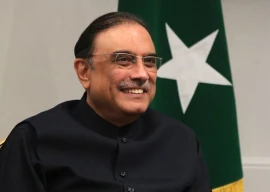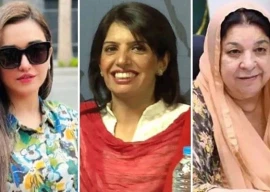
But then if one looked rather closely at what the two countries had wanted to achieve from this meeting, one could not but reach the conclusion that both Islamabad and New Delhi had succeeded in creating the impression that neither had conceded anything to the other. This is perhaps why the two governments are gloating and blaming each other for the stalemate.
That the talks took place at all - because the US was nudging the two sides to resume the peace process broken off since November 2008 following the Mumbai tragedy - has never been in doubt. Washington wants Islamabad to move into North Waziristan. To do so, Pakistan would have to move part of its forces from the southern borders – a move it can ill afford because of the perceived Indian threat. So, Washington uses its new-found civil-nuclear-related leverage in New Delhi to persuade it to reassure Islamabad through a resumption of the peace process. India allows itself to be persuaded because it wants to use the opportunity to get a reassurance from Islamabad that a Mumbai-like attack would never be repeated and that Pakistan would keep its jihadis on a leash when the country hosts the Asian Games later this year.
From the way the talks unravelled earlier this week, it seems Pakistan was not at all willing to give India such an assurance, unless New Delhi agreed to resume the composite dialogue. India, on its part, seemingly feels from its new-found perch in the G-20 that the composite dialogue is of no use to it any longer and that the US would help it out by putting to work its massive economic leverage in Islamabad to make Pakistan agree to resolve the Mumbai issue to the fullest satisfaction of New Delhi.
So, seemingly we are back to square one on the India-Pakistan front. But what about the US which wants Pakistan to go into North Waziristan? Would it now ease its pressure on General Ashfaq Pervaiz Kayani to deliver the Haqqani network? Hardly.
Perhaps that is why the talks did take place despite the Indian home secretary’s statement just on the eve of the meeting of the two foreign ministers that the Inter-services Intelligence had directly masterminded the Mumbai massacre. And again that is perhaps why the talks are likely to continue despite our foreign minister’s post-dialogue outburst. He had claimed that the talks made no headway because, according to him, his Indian counterpart was pulled away from an agreement at the last minute by his masters in New Delhi.
So Krishna has invited Qureshi to visit India later this year and the latter has accepted the invitation. But then between now and the time Qureshi visits New Delhi, can one expect any tangible progress on the ongoing Mumbai investigations in Pakistan?
Published in The Express Tribune, July 19th, 2010.

















COMMENTS
Comments are moderated and generally will be posted if they are on-topic and not abusive.
For more information, please see our Comments FAQ